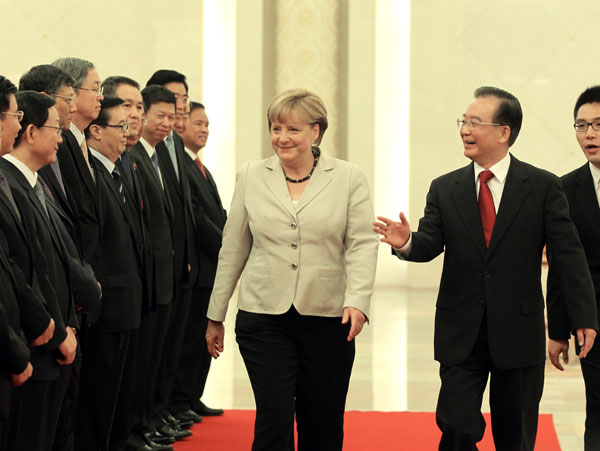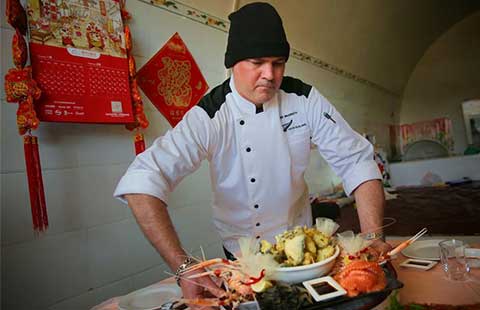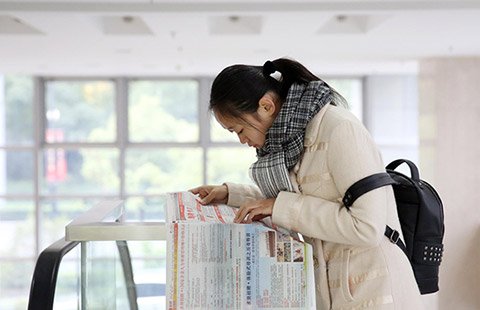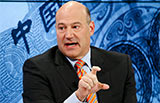Wen lends eurozone a hand
By Chen Jia, Cheng Guangjin and Wang Zhuoqiong (China Daily) Updated: 2012-08-31 03:30Premier looks at purchasing bonds as Airbus deal signed
China may buy more European government bonds, providing eurozone debt risk can be contained, Premier Wen Jiabao told visiting German Chancellor Angela Merkel on Thursday.
An agreement with Germany to purchase 50 Airbus jets for $3.5 billion was signed in Beijing on Thursday, a timely boost for German trade as the European powerhouse shows signs of being hit by the eurozone crisis.
 |
|
Premier Wen Jiabao welcomes German Chancellor Angela Merkel in Beijing on Thursday. [Photo/China Daily] |
Wen expressed confidence about the euro and the European Union economy in talks with Merkel, who sought to reassure Beijing that Europe is committed to overcoming the debt crisis.
"China will enhance communication and consultation with the EU, the European Central Bank, relevant monetary funds and major countries to support indebted EU members," Wen said.
China hopes the EU can find a balance between fiscal austerity and economic stimulus, he said.
"The European debt crisis is worsening and gives rise to serious concerns in the international community. Frankly speaking, I am also worried," Wen told reporters after the talks.
He cited uncertainty over whether Greece will leave the eurozone and if Italy and Spain will take "comprehensive rescue measures", a reference to spending cuts and tax increases, to balance their budgets.
"Resolving these two problems rests with whether Greece, Spain, Italy and other countries have the determination for reform," the premier said. "Resolving the European debt problem requires fiscal tightening and finding a balance within individual economies."
Merkel’s two-day visit is her second trip to China this year and takes place against the backdrop of the worsening EU debt crisis and weakening China-EU trade.
Since the two leaders met in February, China has unveiled a range of aid plans, including a contribution of $43 billion to the recapitalization of the International Monetary Fund.
Merkel conceded in talks with Wen on Thursday that the eurozone crisis was not over, but said reforms were starting to take effect.from page 1
"I told Premier Wen that a number of reforms are taking place, and that there is an absolute political will to turn the euro into a strong currency again," she said at a news conference.
China may buy short-term EU government bonds in small quantities but it is too risky to sharply load up on EU debt as the situation in Greece, Italy and Spain may worsen in September, said Zhang Monan, an economist with the State Information Center, a government think tank.
"The premier’s remarks expressed a strong sign to support its biggest trading partner as well as help stabilize confidence in the euro and the world’s economic recovery," Zhang said.
The EU debt crisis has depressed demand for Chinese exports and contributed to China’s most serious growth cooling in three years.
Sino-EU trade dropped 8.9 percent from a year earlier to $48 billion in July, while China’s exports to the EU fell 16.6 percent to $29.37 billion.
In talks with Merkel, Wen highlighted the importance of strengthening China-Europe economic and trade relations.
But Thursday did see a major trade deal. ICBC Financial Leasing, the leasing arm of the Industrial and Commercial Bank of China, signed an agreement with Airbus SAS to buy 50 Airbus A320-family planes, including 20 A320 new engine option aircraft. The deal is worth $3.5 billion, based on catalogue price.
This is the first time that China ordered A320 planes new. They are scheduled to enter service from 2015.
Earlier this year, the government suspended granting approvals to $12 billion worth of Airbus orders, a result of a dispute between China and Europe over the EU’s Emissions Trading Scheme, which will impose a carbon tax on airlines from 2013.
China and Germany also signed more than 10 other agreements, covering aviation, automobiles, communication, energy, the environment, health and maritime cooperation.
Germany is China’s top trade partner in the EU, with nearly half of all European exports to China coming from Germany, and nearly a quarter of all EU imports from China landing in Germany.
Trade between the two countries reached $169 billion in 2011, an 18.9 percent rise on the previous year.
Merkel, who is paying her sixth visit to China since she took office in November 2005, said Germany and China share a wide range of common interests.
"The two countries are highly dependent on each other," said Liu Liqun, a specialist on German studies at the Beijing Foreign Studies University.
Liu cited the appeal of Germany’s advanced technology to China and China’s market potential for Germany.
Wang Haifeng, director of international economics at the Institute for International Economic Research, which is affiliated to the National Development and Reform Commission, said the two countries should jointly fight against trade protectionism to combat global economic woes.
Contact the writer at chenjia1@chinadaily.com.cn
Zhou Wa contributed to this story.
- Chinese economy still an 'engine' rather than a 'laggard'
- Chinese economy deserves unswerving confidence
- China's mobile Internet security grim as malicious programmes increase
- Tourism official vows big 2016 investment, return
- Volkswagen recalling 2,120 SUVs over fire hazard
- Insurance firm issues China's first overseas senior bonds
- China extends $80.8 billion of QFII quota by January-end
- China's central bank makes massive liquidity injection
















